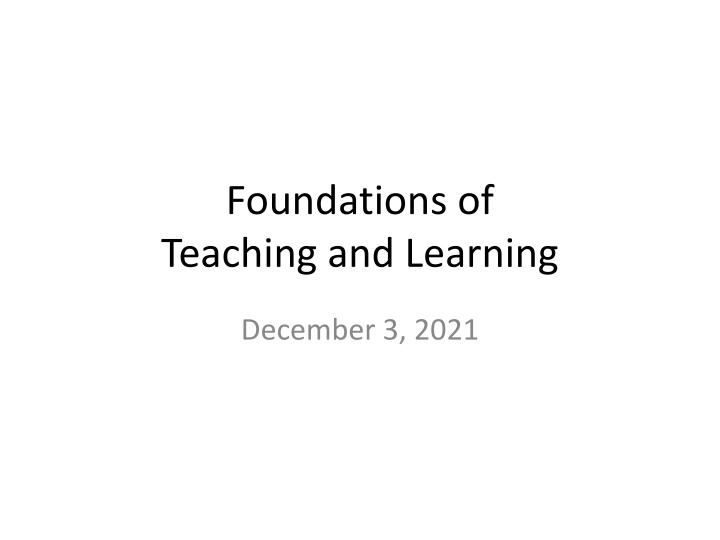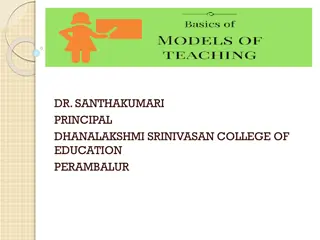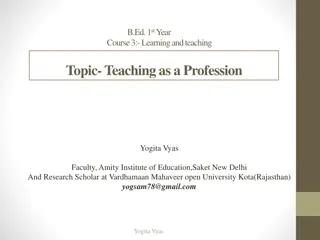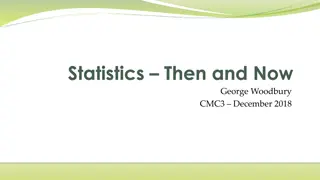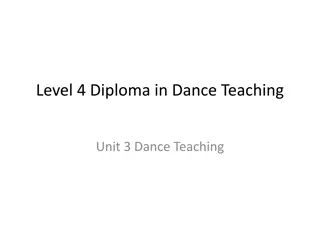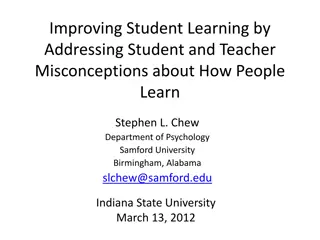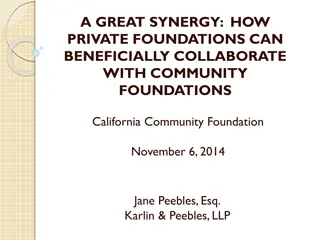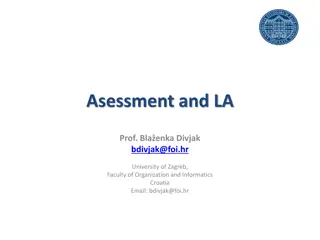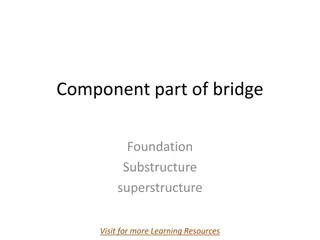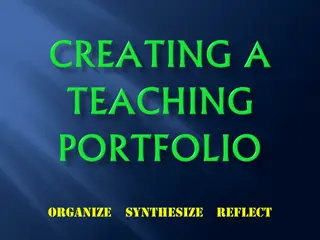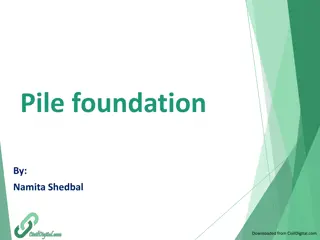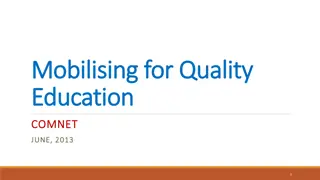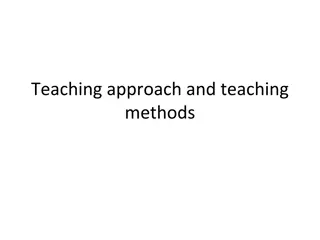Foundations of Teaching and Learning - Class Insights
In this collection of images from a teaching and learning class, various topics are explored, including learning styles, debunking myths about Myers-Briggs Personality Type, and the preference for competition vs. cooperation in education. The content delves into the importance of understanding students' learning preferences and challenges common beliefs about traditional teaching methods.
Download Presentation

Please find below an Image/Link to download the presentation.
The content on the website is provided AS IS for your information and personal use only. It may not be sold, licensed, or shared on other websites without obtaining consent from the author.If you encounter any issues during the download, it is possible that the publisher has removed the file from their server.
You are allowed to download the files provided on this website for personal or commercial use, subject to the condition that they are used lawfully. All files are the property of their respective owners.
The content on the website is provided AS IS for your information and personal use only. It may not be sold, licensed, or shared on other websites without obtaining consent from the author.
E N D
Presentation Transcript
Foundations of Teaching and Learning December 3, 2021
Assignment 4 Any questions?
Todays Class Snake Oil Good Stuff
Learning Styles But why aren t any of you talking about what every teacher knows is the most important thing in education what a student s learning style is? Senior program officer at very important scientific foundation
Who here Thinks of themselves as a verbal learner? Thinks of themselves as a visual learner?
What did Pashler et al.s survey reveal? Why do people want to believe in learning styles still?
Worth noting Mu oz-Merino and his colleagues (2014) have found evidence that there is stable preference for competition versus cooperation And that better outcomes are achieved if you align to this preference Very different than traditional learning styles
Who here Knows their Myers-Briggs Personality Type?
Who here Knows their Myers-Briggs Personality Type? Incidentally, no personality psychologist really believes in the MBTI anymore Currently the HEXACO model is trying to topple the Big Five model
The Big Five Extraversion Agreeableness Openness Conscientiousness Neuroticism Individuals who are high in this trait tend to experience mood swings, anxiety, irritability, and sadness. Those low in this trait tend to be more stable and emotionally resilient.
HEXACO Honesty-Humility: Persons with very high scores on the Honesty-Humility scale avoid manipulating others for personal gain, feel little temptation to break rules, are uninterested in lavish wealth and luxuries, and feel no special entitlement to elevated social status. Conversely, persons with very low scores on this scale will flatter others to get what they want, are inclined to break rules for personal profit, are motivated by material gain, and feel a strong sense of self-importance. (I m a skeptic on the unity of the Humility- Honesty dimension, personally)
Neuromyths What are some myths that are commonly held by educators (and the general population) about neuroscience?
Neuromyths (Howard-Jones, 2014) We only use 10% of our brains Learning styles Right-brained/left-brained learners/people Learning problems associated with developmental differences in brain function cannot be remediated by education
Another neuromyth First in Math claims their software makes a child s neurons grow faster than the competitors "Scientific research shows that this type of learning causes myelin, a neural insulation, to grow and thicken around axons, which connect the brain's neurons to each other. Increased myelin makes the information signal that passes through the neural network faster, stronger, and longer lasting. The result is quicker thinking, and better retention."
Another neuromyth (Grospietsch & Mayer, 2020) Children must be exposed to as many stimuli as possible early in life or their learning will be impaired for their whole lives
Another neuromyth (Grospietsch & Mayer, 2020) You can listen to tapes while you sleep and learn unconsciously
Another neuromyth (Grospietsch & Mayer, 2020) Cross-body exercises better connect your left and right hemispheres and make you smarter overall
Is it a Neuromyth? Brain training software does not improve cognitive skill (Owen et al., 2010; Stojanoski et al., 2021) Brain training software improves cognitive skill but at best only for closely-related tasks (Simons et al., 2016; Rossignoli-Palomeque et al., 2018) Brain training can produce general benefits (McDougall & House, 2012; Gordon et al., 2013) Review noting continuing disagreement and suggesting that clearer definitions and methods needed (Katz et al., 2018)
Other possible neuromyths you d like to talk about?
Spaced practice It works Returning to a topic periodically Spaced practice Is more effective for memory than Covering it all at once Massed practice
Spiraling Review Modern models of memory tend to find that increasing spacing works better than even spacing (i.e. Pavlik & Anderson, 2005, 2008; Khajah et al., 2014) Which is called spiraling review
Spiraling review Who here learned in a classroom that used spiraling review (or spaced practice in general)?
Spiraling review Who here taught in a classroom that used spiraling review (or spaced practice in general)?
Spiraling review Who here has used a learning app that used spiraling review (or spaced practice in general)? Duolingo Anki Pimsleur
Spiraling Review Common in USA in 1960s and 1970s It works, why don t we use it more?
Interleaving Switching between topics or between cover stories
What are the benefits of interleaving for learning? Why might these be seen?
What are the challenges to intensive use of interleaving in education?
What are the challenges to intensive use of interleaving in education? How could these be addressed?
Testing Students seem to study more effectively when they know a test is coming up (even a low- stakes quiz) Why might this be?
If you could take 616 again Would you prefer it if I used reading quizzes? Why or why not?
Cognitive Load Intrinsic Extraneous Germane Let s collaboratively define each of these
Extraneous Cognitive Load What are some examples?
Extraneous Cognitive Load What are some examples? How could we reduce the amount of extraneous cognitive load in each of these examples?
Germane Cognitive Load What are some examples?
Upcoming Classes 12/10: Emotions and Learning 12/17: Social Factors that Mediate Learning 12/20: Final Paper due
